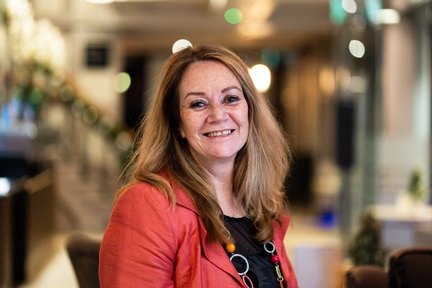Nurseries urged to sign up for tax-free childcare
Nurseries are among the childcare providers across the UK being asked to sign up online for tax-free childcare.

Early years practitioners will receive letters in September and October from HM Revenue and Customs (HMRC) asking them to register online for the Government’s Tax-Free Childcare scheme.
Under the scheme being launched in 2017, parents can open an online account and use it to pay for childcare from an early years provider.
The scheme is called ‘tax-free’ because for every 80p a parent pays, the Government will top up an extra 20p. This is the equivalent of the 20 per cent tax most people pay.
What does it mean for nurseries?
Childcare providers, registered with Ofsted or an equivalent body, will be able to accept payment via Tax-Free Childcare when it becomes available from early 2017 and can sign up online as soon as they receive an invitation letter from the HMRC.
Tax-Free Childcare will replace childcare vouchers, which will be phased out by April 2018. The current employer-supported childcare will remain open to new entrants until April 2018 but parents already registered by this date can continue using it for as long as their employer offers it.
Once a nursery, pre-school, childminder or out-of-school club has signed up, the setting will be visible on the Government’s digital tool which lets parents search for childcare providers who can be paid using Tax-Free Childcare.
How families qualify
To qualify, parents will have to be working and each earning around £115 a week but not more than £100,000 each per year. For eligible families, the Tax-Free Childcare scheme means 20 per cent of their childcare costs (up to £2,000 per child, per year), is covered for children up to the age of 12. (Up to £4,000 per disabled child per year up to the age of 17).
The Government says the tax-free childcare scheme will be more inclusive than the existing childcare voucher system because it will be controlled by parents themselves rather than their employers. This means that self-employed people and those whose employers do not offer childcare vouchers will be able to benefit for the first time.
The Government says tax-free childcare will be available to around two million households and while many in the early years sector welcome the scheme, concerns have been raised.
‘Benefits the affluent more' than the most needy
Neil Leitch, the chief executive of the Pre-School Learning Alliance said: “It is encouraging to see that the Government is taking steps to ensure that providers are aware of impending roll-out the Tax-Free Childcare scheme. This is a significant change for the sector, and so it's important that providers have ample time to prepare.
“We do, however, remain concerned about the scheme itself, and in particular the fact that it is regressive in nature, as the more a family can afford to pay into their account, the more support they will receive from the Government.
“While this approach may benefit more affluent families quite significantly, it offers limited help to many of those that need it most.
“Additionally, the scheme does nothing to address the root cause of childcare cost rises: that is, the fact that providers are having to charge higher fees to make up for shortfalls in Government funding."
In March, the Government announced its Tax-Free Childcare scheme will be gradually rolled out during 2017 to families, with parents of the youngest children able to apply first. Family members including grandparents as well as employers can pay into the online account.
1,500 parents to test new digital joint childcare service
To prepare for the introduction of Tax-Free Childcare in 2017 and the 30 hours extended entitlement for three and four year olds in September 2017, the HMRC will trial a new, digital, joint childcare service later this year.
Speaking on 15 September, the Chief Secretary to the Treasury David Gauke announced in the House of Commons that the digital service is to be tested out this year and will involve 1,500 parents.
Mr Gauke said: “The joint childcare service will provide a simple and straightforward way for working parents to access both schemes, avoiding the need to provide the same information twice, and saving them valuable time.
“Tax-Free Childcare and the extended free entitlement are a key part of the Government’s overall childcare offer which will provide over £6 billion per annum to working families and those on low incomes by the end of this Parliament.”
The National Day Nurseries Association (NDNA) is among the voices in the sector eager to see the pilots find and eliminate teething problems.
Claire Schofield, director of membership, policy and communications at the NDNA said: "We will be watching the pilots carefully. It’s important they are learned from and that new admin burdens on nurseries are minimised.
“This joined-up approach could be built upon with a single childcare passport system with entitlement to funded hours and Tax-Free Childcare paid into a single account that parents can then use with the childcarer of their choice.”
For more information about the Tax-Free Childcare scheme visit:
www.gov.uk/government/news/tax-free-childcare-top-things-childcare-providers-should-know
Latest News
 24-Apr-24
Find out the top nurseries in 2024
24-Apr-24
Find out the top nurseries in 2024
 06-Jun-23
UK's top nurseries in 2023 revealed
06-Jun-23
UK's top nurseries in 2023 revealed
 16-Dec-22
Winter Wonderland: Ice sculptures, aerial acrobatics and white knuckle rides
16-Dec-22
Winter Wonderland: Ice sculptures, aerial acrobatics and white knuckle rides
 28-Nov-22
5 mins with Caroline Wright, early childhood director at Bright Horizons
28-Nov-22
5 mins with Caroline Wright, early childhood director at Bright Horizons
 25-Nov-22
Camilla gives nursery children Paddington bears left as tribute to Queen Elizabeth II
25-Nov-22
Camilla gives nursery children Paddington bears left as tribute to Queen Elizabeth II